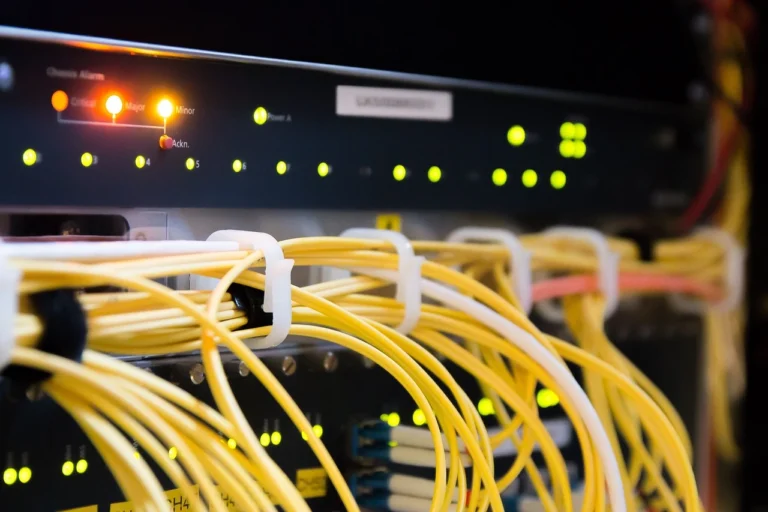
Let’s be real: studying for the Cisco exam on your own is no small feat. At first, I doubted my ability to pull it off solo. I had heard of people attending boot camps and group study sessions, but I wasn’t ready to spend weeks in classrooms. So, I decided to go the independent route and study alone for the Cisco exam. Let me take you through my journey and the exact steps I took that helped me pass, all while studying solo. If I can do it, so can you.
Is Studying Alone Enough to Pass the Cisco Exam?
At first, the idea of studying for the Cisco exam alone seemed intimidating. The exam is known to be challenging, especially if you don’t have a strong network background. But after a little research and planning, I realized that it was completely doable. The key to passing the exam on your own is using the right materials, staying organized, and sticking to a routine. I did all of this, and guess what? I passed.
It might sound a bit too optimistic, but the truth is, when you’re studying for something like Cisco, you don’t always need a class or group. You just need discipline and a solid study strategy. What made the difference for me was a structured approach, consistent practice, and a focus on quality resources. Plus, the ability to control my own pace and study style helped me absorb the material better than I imagined.
Crafting a Personalized Study Plan
The first step I took was creating a study plan. I knew that without a plan, I’d be lost. I couldn’t just dive into the material and hope for the best. I spent a good couple of days breaking down the Cisco exam content into smaller chunks. This was crucial because Cisco’s curriculum is broad, and I didn’t want to miss anything important.
I started with the basics: networking fundamentals. I had to ensure I understood the concepts of IP addressing, subnetting, and routing, as these are the building blocks for everything else. Once I was comfortable with these, I moved on to more complex topics like security protocols and network automation.
I gave myself enough time for each section based on how difficult I found the topic. I set weekly goals, aiming to finish certain chapters by the end of the week, with weekends dedicated to reviewing and reinforcing what I’d learned. That way, I wasn’t rushing through the material, and I could focus on understanding each topic thoroughly before moving on.
Every few weeks, I would look back at my plan and check my progress. If I was ahead of schedule, I’d allow myself a bit of a break. But if I was falling behind, I would adjust my weekly goals. This helped me stay on track and motivated. Honestly, the more I stuck to the plan, the more I felt like I was in control.
Diving into the Official Cisco Curriculum
When I decided to study alone for the Cisco exam, I knew the official Cisco curriculum had to be my foundation. Why? Because it’s not only the most up-to-date resource but also designed to cover exactly what you need for the exam. I had no interest in third-party resources that didn’t align with the test objectives.
I went through the Cisco Certified Network Associate (CCNA) study guide, and trust me, it was thorough. Each chapter felt like I was building a new layer of knowledge that would connect to the next. At first, some of the chapters felt dry and overwhelming, especially when they talked about topics like routing protocols and VLANs. But I pushed through, because I knew these were key topics that the exam would focus on.
Sometimes, I’d re-read a section a few times before moving on. There’s no shame in this, and I found that repetition helped me grasp difficult concepts. One thing I learned through my study journey was that you can’t rush through material and expect to remember everything. Slow and steady wins the race.
Also, while I mostly relied on the curriculum, I occasionally looked up supplemental materials. YouTube tutorials, Cisco forums, and blogs were super helpful when I felt like I wasn’t fully getting a concept. These resources often explained things differently, which helped solidify my understanding.
Embracing Hands-On Practice
Reading and watching videos can only take you so far. I realized quickly that to truly master the concepts and prepare for the Cisco exam, I needed hands-on practice. That’s where Cisco Packet Tracer and GNS3 came into play. If you’re not familiar with these tools, they allow you to simulate networks and practice configuring routers, switches, and other network devices without needing to own expensive equipment.
I started by replicating network setups from the curriculum. I configured routers and switches, set up IP addresses, and created VLANs. At first, I was a bit clumsy with it, but I kept going. There was something deeply satisfying about troubleshooting my mistakes and getting the configurations right.
Packet Tracer was especially useful because it allowed me to visualize network topologies and troubleshoot without being physically in front of a device. It felt like a safe environment where I could experiment without the pressure of breaking something. As I grew more comfortable with the tool, I was able to simulate more complex scenarios, such as setting up dynamic routing or creating VPNs.
In the final weeks leading up to my exam, I devoted several hours a day to hands-on practice. I knew this was going to make the biggest difference in my performance. On exam day, I wasn’t intimidated by the practical parts of the test because I had already spent so much time working with the software.
Joining Online Communities for Support
One of the best decisions I made while studying alone was to join online study communities. While it might seem like a solitary journey, you don’t have to be completely isolated. I joined several forums where people were discussing Cisco exam topics, troubleshooting issues, and sharing tips.
These forums became an invaluable resource for me. I could ask questions when I got stuck, and I often found that someone else had already posted an answer to the problem I was facing. More importantly, seeing others’ progress kept me motivated. When I was feeling down or frustrated with a topic, I could go into the forum and read about others who were in the same boat but had overcome it.
I also found online study groups to be useful for discussion. We would meet once a week (virtually) to go over tough topics. Sometimes just talking through a difficult concept with others helped me understand it better. It’s a good reminder that even when you’re studying alone, you’re not entirely on your own.
Utilizing Quality Study Materials
Another key to my success was using top-tier study materials. When I first started studying, I made the mistake of grabbing whatever I could find for free online. Some of it was helpful, but I quickly realized that the quality varied, and I needed something more structured and reliable.
That’s when I decided to invest in a good CCNA study guide. I picked up a book that had practice exams and detailed explanations. I also subscribed to a few online courses. These courses provided structure and clear explanations of difficult concepts.
I was also careful to include practice exams as part of my routine. Every couple of weeks, I would take a full-length practice test. This helped me get used to the format of the exam and pinpoint areas where I was weak. By the time I sat for the real exam, I was already comfortable with the question types and time limits.
Conclusion: You Can Do It Too
Passing the Cisco exam alone is totally possible. It requires planning, dedication, and the right approach, but with the right study plan, resources, and hands-on practice, you’ll be well on your way. I remember feeling nervous at first, but looking back, I’m proud of the journey I took on my own. Studying solo taught me to be disciplined and resourceful, and I believe it made me better prepared for the exam.
So, if you’re about to start this journey, trust that you’ve got what it takes. Create a plan, stick to it, practice, and don’t be afraid to ask for help when you need it. And remember: It’s not about how many hours you put in, but how you use those hours. Stay focused, and you’ll not only pass the Cisco exam, you’ll crush it.





